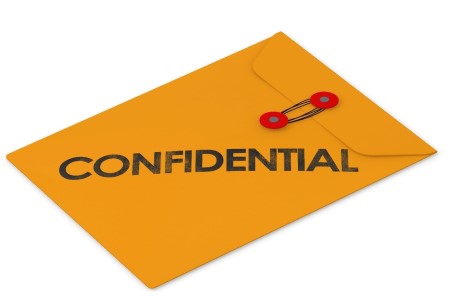How to send sensitive documents via courier
In today's digital age, the protection of sensitive documents is more crucial than ever. While many operations have moved online, the need for physical document transportation persists, especially for critical, confidential, or legal documents. This necessity brings about significant risks and challenges, particularly when these documents are in transit. Recognising these risks is the first step towards mitigating them, and that's where the expertise of a reliable courier service comes into play. This blog aims to arm you with comprehensive insights and actionable strategies to ensure the safe dispatch of your sensitive documents via courier services.

What is the importance of protecting sensitive documents
Sensitive documents are the lifelines of various operations, be it personal, business, or governmental. Their compromise can lead to dire consequences including identity theft, business espionage, legal repercussions, and loss of credibility. Therefore, safeguarding these documents during transit isn't just a precaution; it's a necessity.
What are the risks associated with transporting sensitive documents
When sensitive documents are on the move, they are vulnerable to a myriad of risks—loss, theft, unauthorised access, and accidental exposure, to name a few. The repercussions of these incidents can be devastating, affecting not just the entities involved but also individuals whose data might be compromised.
Understanding sensitive documents
What is the definition and examples of sensitive documents
Sensitive documents encompass a wide array of materials that, if disclosed to unauthorised parties, could cause harm or damage. This category includes legal documents like court papers, agreements, medical records, personal identification documents, financial statements, and proprietary business information.
Potential risks and consequences of mishandling sensitive documents
The mishandling of such documents can lead to legal troubles, financial losses, breaches of privacy, and in some cases, endanger personal safety. The integrity of a business and the trust of clients and partners are also at stake, making the handling of these documents a matter of utmost importance.
Choosing the right courier service
Factors to consider when selecting a courier service
Choosing the right courier service is pivotal in the secure transportation of sensitive documents. Key factors to consider include the courier's reputation, their security protocols, experience with sensitive materials, and customer reviews. A reputable courier will offer transparent practices, robust security measures, and a track record of reliability.
Comparison of different types of courier services
Not all courier services are created equal. Standard services might suffice for everyday mailing needs, but sensitive documents often require specialised courier services. These specialised services offer enhanced security measures, dedicated handling, and sometimes even armed transportation, depending on the document's nature and value.
Tips on researching and selecting the best courier service for your needs
To select the best courier service, start by defining your specific needs. Research potential couriers, focusing on their experience with sensitive documents. Don't hesitate to ask for references or case studies. Ensure they provide adequate insurance, tracking capabilities, and have a straightforward process for reporting and addressing any issues during transit.
By choosing the right courier and adopting a meticulous approach to preparing your documents for shipment, you can significantly mitigate the risks associated with transporting sensitive information.
How to prepare your documents for shipment
1. Proper packaging techniques to ensure document safety and integrity
When preparing sensitive documents for shipment, the right packaging is your first line of defence. Use sturdy, durable materials that can withstand transit. Rigid cardboard envelopes are ideal for papers, preventing them from bending or folding. For thicker document bundles, consider double-boxing: placing your document within a smaller box and then inside a larger one with padding materials like bubble wrap or foam. This method offers additional protection from external pressures and impacts.
2. Importance of waterproof and tamper-evident packaging
Waterproof packaging is crucial to protect your documents from moisture and liquid damage, which can occur during transit due to weather conditions or spills. Utilise waterproof envelopes or plastic sleeves to shield the papers. Additionally, tamper-evident packaging ensures that any unauthorised access to the documents during transit is immediately noticeable upon arrival. These packages are designed to show clear signs of interference, such as broken seals or damaged locks, alerting the recipient to potential tampering.
3. Labelling and addressing: best practices to avoid mis-delivery
Clear and precise labelling is essential for the secure delivery of your documents. Use legible, durable labels that won't smudge or detach during transport. Include all necessary information: recipient's full name, address, and contact details, and consider adding a return address. For added security, avoid mentioning the contents' nature on the exterior packaging. Double-check the details for accuracy to prevent misdelivery, a common issue that can lead to sensitive information falling into the wrong hands.
Utilising additional security measures
1. Options for enhanced security (sealed envelopes, locks, tracking)
To further secure your documents, consider using sealed envelopes that indicate any attempt at opening. Locks or security ties can add an extra layer of security for boxes or containers. Most courier services offer tracking options, enabling you to monitor your package's journey and receive updates on its status, which is particularly vital for sensitive materials.
Utilising additional security measures
1. Options for enhanced security (sealed envelopes, locks, tracking)
To further secure your documents, consider using sealed envelopes that indicate any attempt at opening. Locks or security ties can add an extra layer of security for boxes or containers. Most courier services offer tracking options, enabling you to monitor your package's journey and receive updates on its status, which is particularly vital for sensitive materials.
2. Understanding and using courier service security features (gps tracking, secure transport)
Familiarise yourself with the security features offered by your chosen courier service. GPS tracking allows real-time monitoring of your package's location, offering peace of mind and immediate alerting in case of deviations from the planned route. Some couriers provide secure transport options, ensuring that sensitive documents are handled with extra care and under stringent security protocols.
3. Importance of Insurance for High-Value Documents
insurance is a critical consideration when sending valuable or irreplaceable documents. it provides financial protection in the event of loss, damage, or theft during transit. ensure that the insurance coverage meets the actual value of the document's content and understand the claims process, should you ever need to use it.
Documentation and record-keeping
1. Importance of Maintaining a Clear Chain of Custody
A clear chain of custody is vital for sensitive documents, establishing a documented trail that records every person who handled or transferred the documents throughout the shipping process. This trail is crucial for maintaining the integrity of the documents and can be pivotal in the event of a dispute or investigation.
2. Keeping records of all communication and shipment details
Document all interactions and steps taken from the moment you decide to ship the documents to their arrival at the destination. This includes conversations with the courier service, tracking numbers, receipts, and any correspondence related to the shipment. These records can be invaluable if there are any discrepancies or issues during transit.
3. How to properly document the sending and receiving process
When sending, include a detailed inventory of the documents and obtain a receipt from the courier. Upon receiving, the recipient should verify the contents against this inventory and note any discrepancies or signs of tampering. Both sender and recipient should keep copies of all relevant documentation, ensuring that if any part of the process is questioned, there is clear, documented evidence to refer to.
Legal and compliance considerations
1. Understanding relevant laws and regulations related to sending sensitive documents
When sending sensitive documents, it's essential to be aware of and understand the legal framework and regulations that govern the handling and transportation of such materials. This includes privacy laws, data protection regulations, and sector-specific compliance requirements. Being knowledgeable about these regulations helps in ensuring that the method of sending documents aligns with legal standards, thereby protecting both the sender and the recipient from potential legal repercussions.
2. Ensuring compliance with industry-specific guidelines and standards
Different industries may have specific guidelines and standards for handling sensitive information. Whether it's healthcare, legal, financial, or any other sector, adherence to these industry-specific guidelines is crucial. Ensure that the courier service you choose is familiar with and capable of complying with these standards, thus safeguarding the integrity and confidentiality of your documents.
3. Navigating international shipping (if applicable): customs and regulatory considerations
If you're sending documents internationally, you'll need to navigate additional layers of complexity, including customs and regulatory considerations. Understand the customs processes of the destination country, and ensure that all necessary documentation is complete and accurate to avoid delays or confiscation. Be aware of any international regulations that might affect the shipment of your documents, and plan accordingly to ensure compliance.
Addressing potential issues
1. Common challenges in sending sensitive documents via courier
Sending sensitive documents can come with a variety of challenges, such as risk of loss, theft, or exposure to unauthorised parties. Identifying these potential challenges in advance can help in developing strategies to mitigate them effectively.
2. Proactive measures to mitigate risks
To minimise risks, take proactive measures such as choosing a reputable courier service with experience in handling sensitive documents, using tamper-evident packaging, and opting for services that offer tracking and secure delivery options. Educating yourself and the recipient about the best practices for handling sensitive documents can also play a crucial role in risk mitigation.
3. Steps to take in case of a breach or loss of documents
Despite all precautions, there is always a risk of unforeseen incidents. Have a response plan in place for scenarios such as breach, loss, or unauthorised access to the documents. This plan should include immediate steps to report the incident to relevant authorities, notify the recipient, and mitigate any potential damage. Understanding the appropriate response measures can significantly reduce the impact of such incidents.
Sending sensitive documents via courier
We've explored the critical steps necessary to ensure the safe couriering of sensitive documents. Starting with identifying what constitutes sensitive information, we've navigated through selecting the right courier service, preparing your documents for shipment, employing additional security measures, and maintaining accurate documentation and communication throughout the process. Legal and compliance considerations, along with strategies to address potential issues, were also highlighted to provide a comprehensive roadmap for protecting your valuable data.
Sending sensitive documents requires more than just placing them in an envelope and hoping for the best. It demands vigilance, attention to detail, and adherence to best practices. The integrity of your sensitive data hinges on the measures you take to secure it during transit. Whether it's legal documents, financial statements, or personal records, the way you handle these documents can significantly impact your privacy, security, and compliance with regulatory standards.
The courier service you choose is your partner in ensuring document security. It's crucial to select a provider that not only understands the sensitivity of the task at hand but also offers robust security measures to back it up. Prioritise services that offer transparency, reliability, and a proven track record of handling sensitive information. Remember, the extra effort and cost involved in selecting a top-notch courier service are small compared to the potential risks of mishandled sensitive documents.
